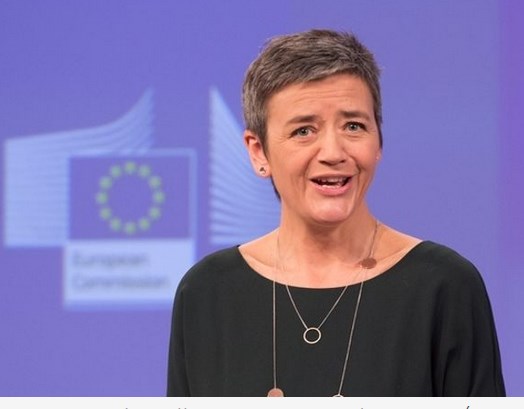The European Commission is today proposing to the European Parliament and the Council to sign a declaration on the rights and principles that will guide the EU’s digital transformation .
The purpose of the draft Declaration on Digital Rights and Principles is to provide citizens with a clear reference to the kind of digital transformation that Europe promotes and supports.
The statement will also be a guide to new technologies for decision makers and businesses. The rights and freedoms enshrined in the EU legal framework and the European values that are the expression of the principles should be respected in the online environment as much as in the offline environment. Once jointly approved, the declaration will also define the approach to digital transformation that the EU will promote around the world.

“We want secure technologies that are at the service of people and that work while respecting our rights and values. And we want this to be true online as well. We also want all citizens to have the opportunity and the means to actively participate in our increasingly digital societies. This statement is a clear reference to the rights and principles applicable in the online environment.“said Margrethe Vestager , Executive Vice President for a Digital Europe.

Internal Market Commissioner Thierry Breton said: We want Europeans to know that by simply living, studying, working or doing business in Europe, they can rely on state-of-the-art connectivity, uninterrupted access to public services and a secure and fair digital space. The Declaration on Digital Rights and Principles also states once and for all that offline offenses should be illegal and online. At the same time, we intend to promote these principles as a standard worthy of being followed by the whole world .
Rights and principles in the digital age
The draft declaration addresses essential rights and principles for the digital transformation, such as focusing on individuals and their rights, supporting solidarity and inclusion, ensuring online freedom of choice, encouraging participation in the digital public space, improving security, safety and security. people’s capacity for action and promoting a sustainable digital future.
These rights and principles should accompany EU citizens in their daily lives: high-speed and affordable digital connectivity everywhere and for all, well-equipped classrooms and teachers with digital skills, uninterrupted access to services. public, a secure digital environment for children, disconnection after work, obtaining easy-to-understand information about the impact of our digital products on the environment, controlling how their personal data is used and with whom it is shared.
The declaration is based on EU law, from treaties to the Charter of Fundamental Rights, but also on the case law of the Court of Justice. Experience gained with the adoption of the European Pillar of Social Rights Search for available translations for the previous link has also been used for this purpose. Former President of the European Parliament, David Sassoli, has supported, since 2018, the idea that access to the Internet is a new human right. The promotion and implementation of the principles set out in the declaration will constitute a common political commitment and a common responsibility at both Union and Member State level, within the limits of their respective competences. To ensure that the statement will have a real impact on the ground, the Commission has proposed in September to monitor progress, assess gaps and make recommendations for action through an annual report on the state of play of the goals of the digital decade .
Fisa-Drepturile-si-principiile-digitale-CEWhat will happen in the near future?
The European Parliament and the Council are invited to discuss and approve the draft declaration at the highest level by the summer of this year.
What is the Context of this Statement?
On 9 March 2021, the EC set out its vision for the digital transformation of Europe by 2030 in a Communication entitled ” The Digital Compass: The European Model for the Digital Decade “. In September 2021, the Commission introduced a solid governance framework for achieving digital goals in the form of a document entitled ” The Road to the Digital Decade “. Speaking on June 1, 2021 at the Leading the Digital Decade event in Sines, Portugal, Commission President Ursula von der Leyen said: “ We are open to new technologies, but we stand up for our values. ”
The Commission also held an open public consultation Demonstrating the broad support of the public on European digital principles – 8 out of 10 EU citizens consider it useful for the European Union to define and promote a common European vision on digital rights and principles – and a special Eurobarometer survey . The annual Eurobarometer surveys will collect qualitative data, based on citizens’ perceptions of how the digital principles enshrined in the declaration are implemented in the EU.
The Declaration is also based on previous Council initiatives, including the Tallinn Declaration on eGovernment , the Berlin Declaration on the Digital Society and Digital Value-Based Governance. and the Lisbon Declaration – Digital Democracy with a Purpose to define a digital transformation model that strengthens the human dimension of the digital ecosystem and focuses on the digital single market.
Additional documentation
1. Communication from the Commission to the European Parliament and the Council on the formulation of a European Declaration on Digital Rights and Principles
2. Fact sheet on digital rights and principles for all EU citizens
3. The compass for the digital dimension: the European model for the digital decade.
4. Communicating the Road to the Digital Decade
5. Tallinn Declaration on eGovernment
6. Berlin Declaration on the Digital Society and Value-Based Digital Governance
7. The Lisbon Declaration – Digital Democracy with a Purpose















